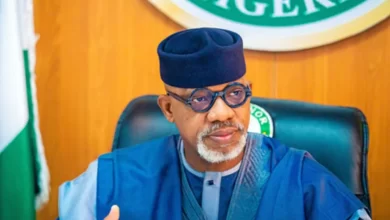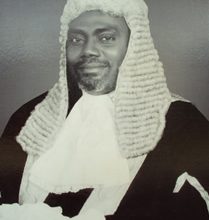Saraki, fuel subsidy motion and the anti-corruption fight

BY WALE BAKARE
In 2011, the then Chairman, Senate Committee on Environment and Ecology and now Senate President, Dr. Abubakar Bukola Saraki single-handedly moved a motion on the floor of the Senate calling for an investigation into how N240 billion budgeted for fuel subsidy for the whole of 2011 had skyrocketed to over N1.2 trillion under ten months.
That was how the biggest scam in the history of the downstream sector was unearthed. During this period, the government was unable to carry out any meaningful reform with a staggering deficit that stood at over 6 per cent thus diminishing the hopes of performing budget for the following year.
It is difficult to imagine a more esteemed legislative intervention in the 7th Senate than this noble discovery on the fuel subsidy scam where amounts ratified by the National Assembly and approved by the appropriation Act was exceeded by a whooping N960 Billion.
One of the big posers raised by Dr. Saraki in 2011 was the observation of an upward swing in the first three months of the 2011 budget year, where NNPC and independent marketers did not exceed N62 billion monthly. He wondered why within three months, the figures had moved astronomically to between N159 billion and N186 billion. This finding further exposed the various sharp practices and shoddy operations within the system. The fuel subsidy report finally affirmed the suspicion that Nigerians had over the poor accounting and auditing systems in the Nigerian oil industry.
Following the motion moved by Senator Saraki that exposed the corrupt practices and the intricacies never before witnessed in the oil sector, the House of Representative set up an Ad-hoc committee on Oil Subsidy probe which invited the ministers of finance and petroleum to give account of the subsidy payments made to oil marketers. Subsequently, N500 billion was saved annually on subsidy to the oil marketers, but for Saraki, the public might not have been aware of the rot, fraud and mismanagement in the Nigerian oil sector.
Determined to assist the reluctant executive in its Kangaroo fight against corruption and mismanagement of public funds, Dr. Saraki took his advocacy further by opposing the inclusion of Kerosene subsidy in the 2015 budget as well as his opposition to the Petroleum Swop deal proposed by the Nigeran National Petroleum Corporation.
But soon, Saraki became the target of the oil thieves and the business cartel and paid dearly for exposing their illicit business with the emergency interest in his activities as Governor of Kwara State. He has become a frequent visitor to the anti-graft agencies annex on his account of using his voice as a weapon to correct the ills on national issues.
At the inception of the 8th Senate, Senator Bukola Saraki had also pledged that he was determined to give all necessary legislative support to the administration of President Muhammadu Buhari to fight and reduce corruption to the barest minimum. His previous actions and bold steps taken such as this Fuel Subsidy Probe and passage of key anti-corruption bill shows that he is truly committed to the anti-graft war.
The Senate under the leadership of Bukola Saraki has passed a number of key anti-corruption bills namely:
– Whistleblowers’ Protection Bill which seeks to encourage and facilitate the disclosures of improper conduct by persons, public officers and corporate bodies, private and public bodies.
– Witness Protection Bill which creates a programme in Nigeria that protects witnesses who provide vital information, evidence or render assistance to law enforcement agencies during investigations, enquiries or prosecutions,
– Anti-money laundering bill aims to tackle cross border crimes and help authorities tackle money laundering and funding of terrorism by allowing its financial intelligence unit to operate free of state control
– Mutual assistance in criminal matters is aimed at enhancing the collaboration and mutual assistance between the Nigerian government and its foreign counterparts. This Bill will also help to facilitate the identification, tracing, freezing, restraining, recovery, forfeiture and confiscation of proceeds of crime wherever they are located
-The Nigerian Financial Intelligence Unit (NFIU) Bill, this bill is line with international best practices, establishes a substantive and autonomous financial intelligence unit in Nigeria, that will promote the exchange of information with all countries on issues that relate to criminal intelligence and financial investigations that deal with money laundering, terrorism financing, proliferation of arms, corruption, financial and economic crimes.
These anti-corruption bills are part of the Saraki-led Senate’s targeted legislative agenda in its commitment to support the Executive in enhancing development through better use of public resources, government reform programmes in public expenditure, procurement and financial management.
Bakare, lives in Abuja.





